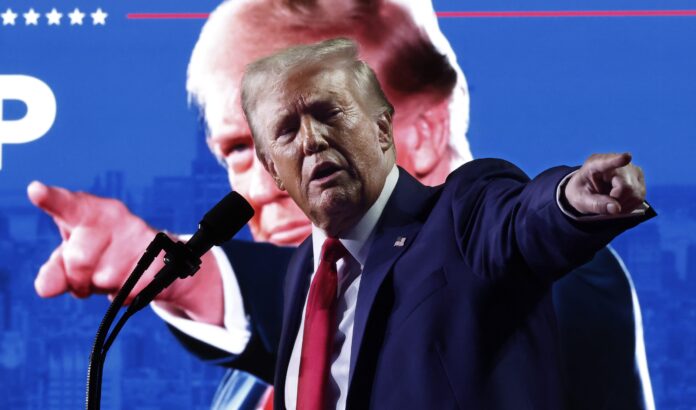Residents of Gaza have reacted with deep scepticism to the latest peace initiative unveiled Monday by former US President Donald Trump, describing it as unrealistic and detached from the realities of war. For many, the plan — framed as a 20-point roadmap for ending hostilities — amounts to nothing more than political theatre, designed to appease international audiences while leaving Gazans to endure devastation.
From makeshift shelters in Al-Mawasi, one of the designated humanitarian zones, voices of frustration poured out. “It’s clear that this plan is unrealistic,” said Ibrahim Joudeh, a 39-year-old computer programmer displaced from Rafah, a city laid to ruins since the military campaign began in May. He argued that the deal was structured around conditions impossible for Hamas to accept, ensuring that war would drag on without relief.
The proposed deal, endorsed by Israeli Prime Minister Benjamin Netanyahu after talks in Washington, outlines a ceasefire, disarmament of Hamas, release of hostages, and a gradual Israeli withdrawal. It also includes the deployment of a temporary international stabilization force, the creation of a transitional authority led by Trump and foreign leaders, and the exclusion of Hamas or any militant faction from governance in Gaza.
But for Abu Mazen Nassar, 52, the plan was nothing more than manipulation. Displaced from the north to Deir el-Balah, he accused Washington of trickery. “What does it mean to hand over all the prisoners without guarantees to end the war? This is all a farce. Whatever Hamas decides now, it’s too late — they’ve drowned us in their own flood.”
In the overcrowded camps of Khan Yunis, opinions remained divided. Some still clung to fragile hope. Anas Sorour, a 31-year-old street vendor, admitted that optimism was all he had left. “No war lasts forever,” he said, his voice carrying both exhaustion and faith. “This time I believe peace will come, and God willing, it will make us forget our pain.”
Others could no longer summon any trust. Najwa Muslim, a 29-year-old homemaker displaced from Gaza City, said she had lost faith entirely. “If there was real intention to stop the war, they wouldn’t have waited this long. I don’t believe a word anymore. I’ve not only lost faith in the deal; I’ve lost faith in life.”
The bloodshed that followed Trump’s announcement reinforced such despair. At least 30 Palestinians were killed on Monday in Israeli airstrikes, according to Gaza’s civil defence agency, as plumes of black smoke rose over camps filled with displaced families.
To many, the peace plan felt like déjà vu. Negotiations, they argued, have always played out in the same cycle: Israel agrees, Hamas refuses, or vice versa, with civilians paying the ultimate price. Mohammed al-Beltaji, a 47-year-old from Gaza City, put it bluntly: “It’s all a game. We, the people, are the ones paying.”
After nearly two years of relentless conflict, repeated ceasefire promises, and mounting losses, Gazans now meet each new initiative with suspicion. Trump’s plan, despite its high-profile unveiling and Netanyahu’s cautious endorsement, has done little to shift the mood on the ground. For those trapped in Gaza’s daily violence, it represents yet another broken promise dressed up as diplomacy.

